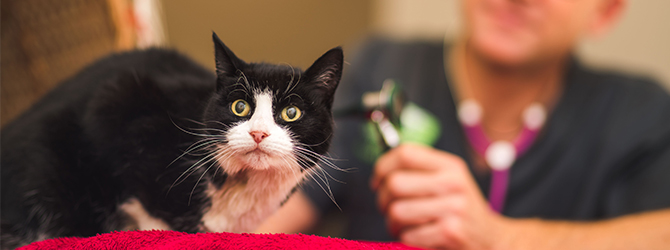Inflammatory Bowel Disease in Cats: Understanding Causes, Symptoms, and Treatment Options
First Published: 23/08/2018
Last Updated: 24/01/2024
Sickness and diarrhoea are worrying symptoms for any cat owner, and it’s natural that you’ll want to get to the bottom (sorry!) of the problem quickly. There are a number of possible causes, which are outlined in our articles on cat vomiting and cat diarrhoea but it’s always best to get along to your local vet for diagnosis and treatment.
One of the most common causes of diarrhoea and vomiting in cats is inflammatory bowel disease (IBD). IBD is a reaction a cat’s stomach or intestines have to recurring irritation.
Recognising the signs and symptoms of IBD in cats
- vomiting
- diarrhoea
- loss of appetite
- weight loss
How is IBD diagnosed?
IBD is most common in middle-aged to older cats (usually aged between five and 12), but younger cats can get it, too.
The irritation that causes IBD stimulates the body to send cells from the immune system to the affected area. These cells are most commonly lymphocytes and plasmacytes. A concentration of these cells in your cat’s stomach or intestines – usually found on a biopsy – is an indication of IBD.
Treating IBD in cats
It can be hard to treat cats with IBD, as the cause is often difficult to identify. Some cats respond well to changes in their diet, but finding the right balance can involve a lot of trial and error. Your vet may recommend medication to prevent the inflammatory reaction.
Vomiting and diarrhoea cause dehydration, and if left untreated, can become a life-threatening situation. Therefore, any cat displaying those signs should be examined by a veterinarian.
There are many possible causes of vomiting and diarrhoea, but inflammatory bowel disease (IBD) is a common cause of gastrointestinal problems in the cat.
Help and advice on inflammatory bowel disease in cats
For expert advice on IBD in cats, get in touch with your local vet.
Find your nearest vet using our Find a Vet page, or speak to a vet online using Online Vets.
